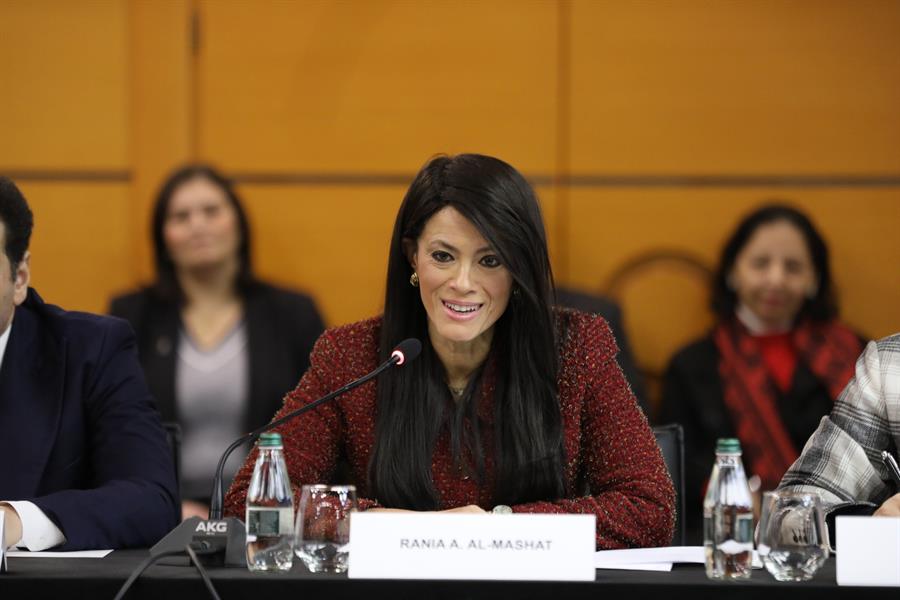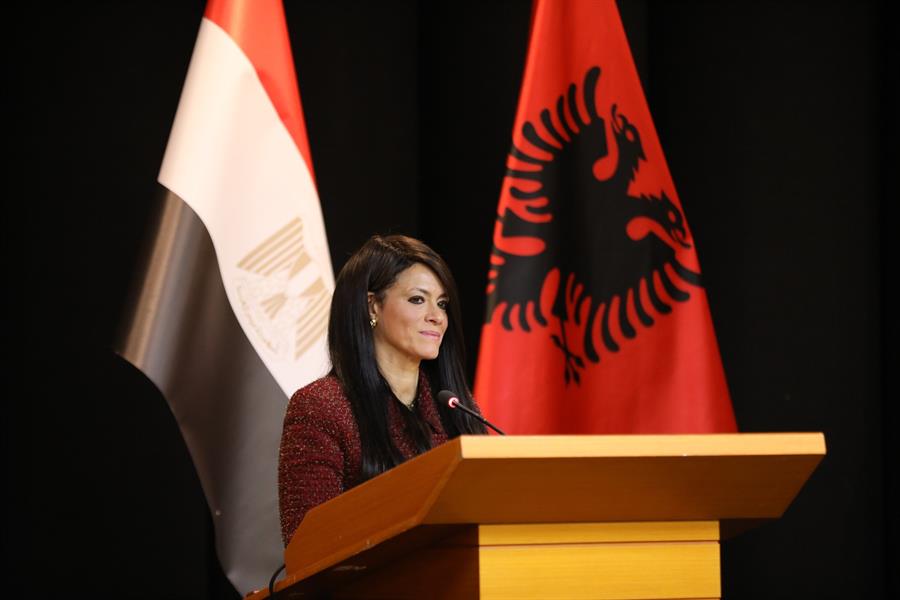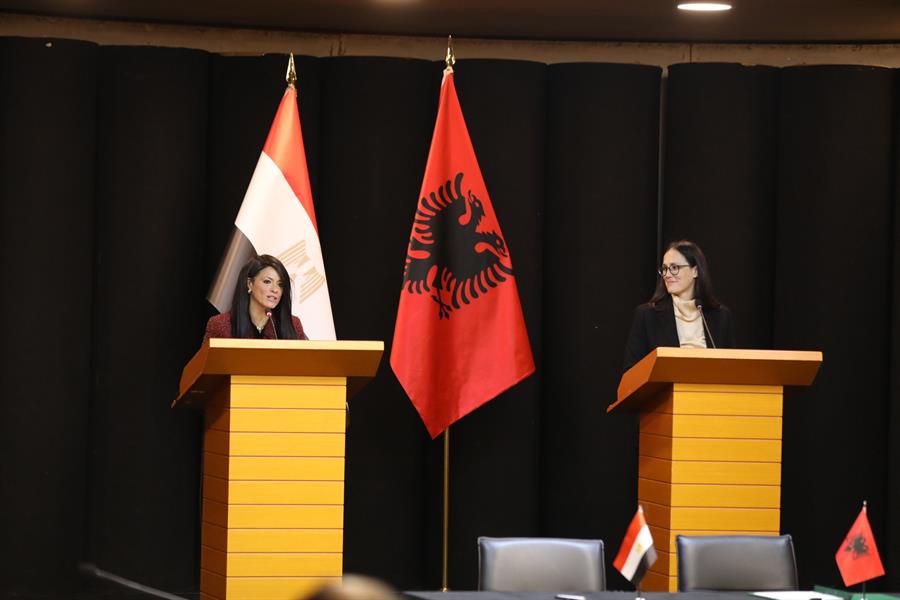Egypt’s Minister of Planning and Economic Development receives the Director of the Center for Sustainable Development at Columbia University

04 April 2022
H.E. Dr. Hala El-Said, Minister of Planning and Economic Development, received the international expert Jeffrey Sachs serves as the Director of the Center for Sustainable Development at Columbia University in the United States of America and is one of the most famous economic thinkers, to discuss aspects of future cooperation in the field of achieving sustainable development goals.
The meeting was attended by Dr. Mahmoud Mohieldin, Special Envoy of the Secretary-General of the United Nations for Financing the 2030 Agenda for Sustainable Development, Executive Director of the International Monetary Fund (IMF), Dr. Ahmed Kamali, Deputy Minister of Planning, and Dr. Jamil Helmy, Assistant Minister of Planning for Follow-up, and Dr. Mona Essam, Head of the Sustainable Development Unit at the Ministry of Planning, Ambassador Hazem Khairat, Director of International Relations at the Ministry of Planning.During the meeting, Dr. Hala El-Said reviewed a number of the ministry's work files, the features of Egypt's Vision 2030, and the process of updating the vision to keep pace with global developments, as well as the features of the state's investment plan.
El-Said referred to the areas of work of the entities affiliated with the Ministry of Planning, which include the Central Agency for Public Mobilization and Statistics, the National Planning Institute, and the National Institute for Governance and Sustainable Development.
She also drew attention to the ministry's internal units, including the modeling unit, the sustainable development unit, and the macroeconomic unit. She also addressed the role of Egypt's Sovereign Fund in promoting partnership with the private sector.
El-Said also highlighted Egypt's participation in the international efforts to achieve sustainable development within the framework of the United Nations through the 2030 Sustainable Development Plan, and its keenness to exchange knowledge and expertise.
On the structural reforms program, El-Said said that it aims to transform the Egyptian economy into a productive economy based on knowledge and enjoy competitive capabilities in the global economy.
The structural reforms program includes six axes of work, the main axis dealing with restructuring the Egyptian economy to diversify the production structure by focusing on the sectors of the real economy. Within this framework, three major priority productive sectors were identified for the structural reforms program.El-Said also reviewed the executive plan of the national project for the development of the Egyptian family, intending to manage the population issue in a sustainable manner and from a comprehensive development perspective, which depends mainly on improving demographic characteristics such as education, health, job opportunities, economic empowerment, and culture, in addition to controlling population growth. El-Said referred to the initiative for a decent life as a living model for sustainable development, targeting all villages in the Egyptian countryside (about 4,500 villages live in which more than half of Egypt's population - 58 million citizens).
For his part, the international expert Jeffrey Sachs said that the Egyptian government decided to address some very important and difficult issues that one cannot ignore and governments feel difficult when doing so.
He added that when we think about the agenda of the sustainable development goals, we can put them in several specific areas, which are education skills, health, energy and industry, agriculture and land use, and urban infrastructure. Egypt needs high-quality education, especially if the focus is on technical education.
Jeffrey Sachs added that Egypt has the ingredients to become a producer and exporter of solar energy and other types of renewable energy.Sachs pointed out the importance of providing a suitable work environment for women, given the official data, noting that the percentage of working women is 25%, and it can reach 60%, perhaps through working from a distance.
Sachs pointed out that every school or government institution must have an electronic presence, and that every student must have a device through which they can easily access electronic platforms.
Sachs pointed out the importance of working to bridge the digital divide in Egypt
"The government can lead the electronic platforms in cooperation with the private sector, where we can have an electronic platform for health, education, and payments, if you do that you will have many applications in Arabic," he said.
He added that there will be an opportunity to put such applications abroad after 5 or 10 years, and these applications can be financed through long-term financing over 30 years, stressing that Egypt is in a position to be a leader in this field.









